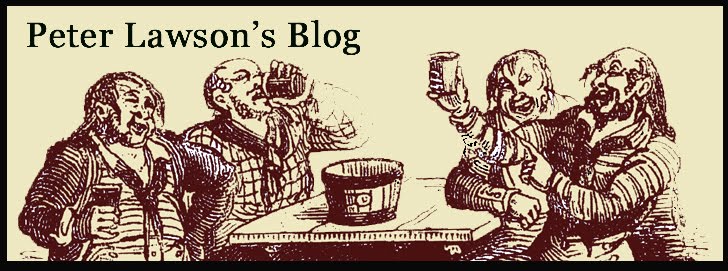I met Maxie in
the port of Vilamoura ,
Portugal
As I walked
past on the dock, the man with the beer piped up in a broad Australian accent,
“Ya missed a bit to yer left.”
I paused and
glanced up to observe the young man’s reaction. I can’t be sure, but I believe
he rolled his eyes. I dropped mine back to the cockpit. “Don’t go exertin’
yerself,” I said, reviving my own Aussie twang.
The man lowered
his binoculars and turned to me. “Maybe you could come aboard and lend a hand,” he replied,
opening a cooler and pulling out a frosted beer.
That’s how I came
to meet Maxie. I helped him out for several hours that afternoon and we repaid
each other in kind on a number of occasions during my stay at Vilamoura. I left
the marina before Maxie. I was headed off to somewhere I can’t recall.
A couple of
years later I ran into him at the anchorage of Spanse Water in Curacao, down in
the Caribbean , where we did a bit of catch-up.
One of Maxie’s
adventures involved the evacuation of a wealthy family from Lebanon Malta
The pick-up
point was a run-down wharf somewhere near Tripoli
As Maxie told
it, he tied up at the wharf on time, waited an hour for his passengers to show
up, then headed out to sea. He was about a mile offshore when a shell hit the
wharf and blew it to smithereens.
Maxie and I
might well have been the proverbial two ships passing in the dark, for as it
turned out, I happened to be in those very same waters around the same time.
A couple of
Dutchmen, an American and yours truly had sailed there from Holland Tripoli
At a particular
time on a particular evening I was to rendezvous with Rob twenty-five miles due
east of Tripoli
Well, as Murphy
would have it, all three nights were washouts. But like diligent boy scouts, we
were prepared with a back-up plan. We re-grouped in Heraklion, Crete , and it was there that Rob regaled us with the
details of his little adventure.
On the first
night, he and a motley crew of locals had set out with the cargo from a small
port somewhere south of Tripoli
In the bow,
perched on a small triangle of decking was a belt machine gun manned by two
men. Behind them, a snaggle-toothed older man brandished a loaded rocket
launcher, while at the stern the captain sat by the tiller on a wooden box,
flanked by two more men with AK47 rifles. The product was piled high amidships.
According to
Rob, the operation was rather haphazard. No one had bothered to secure the machine
gun to the deck so the two men in charge of it spent most of their time trying
to prevent it from falling overboard as the boat rolled. The captain bantered
and laughed with his two companions, occasionally glancing at a compass held
between his legs while steering what appeared to be a completely erratic
course.
When Rob and
his seafaring friends failed to find us on this first night they headed home a
bit before daybreak. There was apparently some confusion as to their intentions
as they steamed back into port: Their own men opened fire on them from the
shore. Fortunately no one was hit before their identity was established.
The next
evening, off they went again. I don’t recall the details of how this particular
debacle came about, but the morning found them way off course—some fifteen or
so miles west of Syria
To Rob’s horror,
the captain decided to attack the gunboat and altered course to intercept. The
crew were in the process of preparing weapons when a second enemy vessel
appeared. Fortunately for all concerned, discretion overcame valour and they
scuttled back to Lebanese waters.
The third evening
was uneventful but they again failed to reach the rendezvous. On this occasion
though, Rob managed to determine one of the reasons why they appeared to be
wandering all over the ocean. The box upon which the captain perched was filled
with hand grenades. The metal in these weapons obviously rendered the magnetic compass
between his legs useless.
Rob flew back
to Lebanon
It was after
I’d turned around and was steaming north that I spotted them. They were headed
south—away from the meeting place. Where they were off to, I have no idea and I
doubt their captain did either!
The swine
told me he was doing a charter in the Greek Islands
